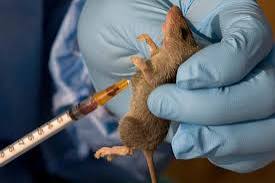The Nigeria Centre for Disease Control and Prevention (NCDC) has expressed concern over a sharp increase in Lassa fever cases, particularly in Bauchi, Edo, and Ondo states, since November 2024.
With the dry season in full swing, the agency is urging Nigerians to adopt preventive measures to curb the spread of the viral hemorrhagic disease.
The Director-General of the NCDC, Dr. Jide Idris, disclosed this during an interview in Abuja on Monday.
He described the outbreak as alarming and emphasized that the ongoing dry season, which typically lasts until April, poses a heightened risk of transmission if preventive actions are not strictly adhered to.
Dr. Idris advised Nigerians to adopt simple but effective hygiene practices such as frequent handwashing with soap and water, proper food storage in rodent-proof containers, and disposing of waste properly to deter rodents.
He also stressed the importance of early intervention, urging individuals to report suspected cases to the nearest health facility.
“Late reporting of cases has been a major obstacle in effectively containing outbreaks,” he said.
The NCDC, according to Idris, has intensified surveillance and response activities in the affected states while rolling out a comprehensive public advisory to educate the public on preventive measures.
Tunde Oladipo, a public health expert, described the situation as a “serious but preventable health crisis.”
He underscored the importance of rodent control, strict hygiene practices, and avoiding contact with sick persons or their bodily fluids as critical steps to prevent the spread of the disease.
“Lassa fever is a serious public health challenge, but with proper awareness and adherence to hygiene practices, its transmission can be significantly reduced,” Oladipo noted.
Lassa fever, named after the town of Lassa in Borno State where it was first identified in 1969, remains endemic in Nigeria, with yearly outbreaks during the dry season.
The disease is primarily transmitted through contact with food or surfaces contaminated with excretions from infected rodents, but it can also spread through direct contact with the bodily fluids of infected persons.
Healthcare workers and caregivers are particularly vulnerable, given their proximity to infected patients.
Symptoms range from mild fever and joint pain to severe bleeding from the nose, mouth, and gastrointestinal tract. The disease is fatal in about 20% of cases, particularly when treatment is delayed.
Do you want to share a story with us? Do you want to advertise with us? Do you need publicity for a product, service, or event? Contact us on WhatsApp +2348183319097 Email: platformtimes@gmail.com
We are committed to impactful investigative journalism for human interest and social justice. Your donation will help us tell more stories. Kindly donate any amount HERE


